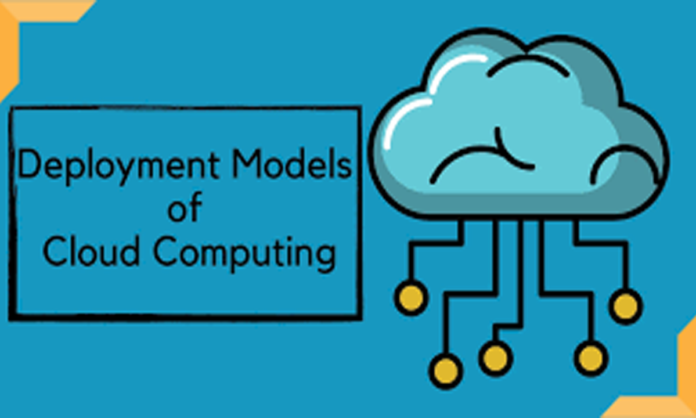TYPES OF CLOUD COMPUTING,DEPLOYMENT MODELS AND CLOUD SERVICE
Cloud computing in simple terms can be defined as the technology in which a resource is provided as a service through
the internet to a user. Before the advent of cloud computing, to store data, any company had to buy stacks of servers and other hardware
components; maintain and upgrade the servers; monitor, report and scan the traffic changes to scale it accordingly. Cloud computing
changed this entire tiring scenario with its highly efficient cost-saving mechanism. It uses remote servers rather than local servers on the
internet to store, manage and process data. Types of cloud computing Cloud computing has two types of models – Deployment model and
Service model. Deployment Models The deployment model defines the type of access to the cloud. There are 3 existing deployment models
in cloud computing, Public cloud – In this case, the cloud service is available to the public. It allows systems and services to be easily
accessible to people. These are owned by Cloud Service Providers (CSP). Example: Amazon Web Service, Azure. Google Cloud Provider
(GCP) Private Cloud – With a private cloud, the cloud service is operated by an exclusive single organization. The cloud data can be
managed by the organization or a third party. It is a single tenancy model in which data that pertains only to a single organization is stored.
Example: Hewlett Packard Enterprise’s Helion Cloud Suite software. Hybrid Cloud – The hybrid cloud is a combination of both public and
private clouds. It involves unique entities that are managed as one across all environments. Service Models Cloud Computing service
models are hassle-free. There are 3 different cloud service models. Infrastructure-as-a-service (IAAS) – It is a model wherein users get
access to basic computing infrastructure. They are commonly used by IT administrators. If the organization is in need of just storage and
virtual machines (VM), then IAAS is the right option. It is enough to run only the application, data, middleware, OS and the rest is managed
by the cloud service providers. Examples of IAAS Products and services include Amazon EC2, GoGrid, rackspace.com. Platform-as-aservice (PAAS) – This model manages only the data and the application resources. All the other resources are managed by the vendor or
CSP. They encapsulate the environment in which the users can build, compile and run their programs without worrying about the underlying
technology. Few notable PAAS providers are Google App Engine, Windows Azure, force.com. Software-as-a-service (SAAS) – It is a model
that provides pay per use of application software to the users and this service is platform independent. It runs a single instance of the
software and makes it usable for multiple users. SAAS is accessible via a web browser or a lightweight application. Popular SAAS providers
are Google ecosystem providing Gmail, google docs, etc., Microsoft Office 365, Salesforce. Benefits of Cloud Computing It provides a pay
as you use model No dedicated team required for maintenance of hardware/ software No server space required Data Privacy and Security
No maintenance worries Fast data recovery Scale dynamically Cost efficient













